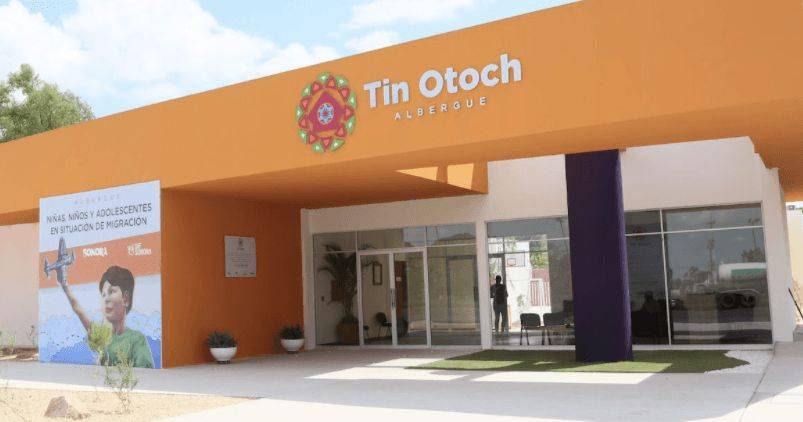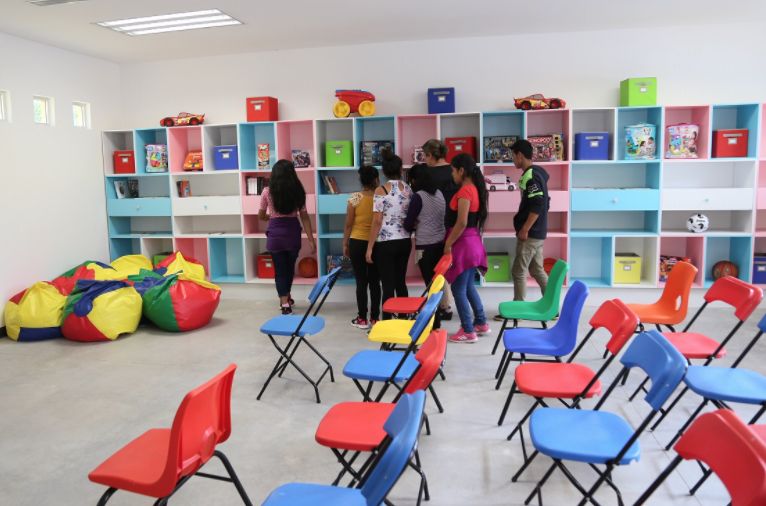In recent years, International Detention Coalition in Mexico has been working with various local authorities towards implementing alternatives to detention for migrant children. The Sonora Attorney General for Child Protection is one such authority. When the “Tin Otoch” children’s shelter opened its door, it also paved the way for the state to implement alternatives to detention even before the law prohibiting child detention had been passed. With the approval of the law, the role of Tin Otoch gained momentum, not only as a shelter, but also for facilitating case management. In this article, the Sonora State Attorney for Child Protection, Lic. Wenceslao Cota Amador, shares the efforts that have been made to eliminate migrant detention for children in the state.
Written by Lic. Wenceslao Cota Amador
Sonora State Attorney General for Child Protection
The State of Sonora, Mexico, is located in the north-east of the country and shares a more than 580-kilometer border with the United States. It is thus considered a transit and shelter area for migrants, among whom are national and foreign, accompanied, and unaccompanied children. Their motives and circumstances for crossing the border may vary, but all require protection of their human rights.
The Sonora Government has designed and implemented solid public policies aimed at guaranteeing the protection of the human rights of migrant children. Since 2004, with the implementation of the “Camino a Casa” (Way home) program by Sonora’s System for the Integral Development of the Family (DIF), Mexican children deported from the United States have been offered protection and provided with residential foster care in a Center for Social Assistance. Here, their food and clothing needs are met, and psychological and legal support are provided. The program works towards family reunification, in collaboration with DIF offices in other states, mainly Guerrero, Chiapas, Tabasco, and Oaxaca, among others. This program has operated with public resources from the Sonora State Government and has secured alliances to professionalise work teams in matters of the protection of human rights in accordance with national and international laws that recognise and promote respect of the rights of migrant children.
The DIF Sonora’s “Camino a Casa” program currently attends to more than 70,000 national, unaccompanied children, and has become a consolidated policy within the context of the risks confronting children, young people, and families in the country.
Claudia Pavlovich Arellano’s government is committed to reorienting public and human resources, as well as infrastructure to strengthen public policy regarding the protection of the rights of foreign, accompanied, or unaccompanied migrant children, in accordance with the General Law for the Rights of Children, passed in 2014, that recognises children as subjects of human rights. The state governor has created strategic alliances (with the Howard G. Buffet Foundation) to build a model of open door residential foster care; and worked with international organisations to establish its foundations, based on concepts and principles such as the superior interest of the child, no detention, a multidisciplinary approach to childhood, and family reunification, among others.
In August 2018, the Sonora DIF Center was opened. “Tin Otoch” (“My home” in Mayan) is based on a model that restores children’s right to health and recreation through occupational projects, such as: music, sport, handicrafts, environmental care, art therapy, and workshops on resilience. The model has become a reference at both a national and international level.

Since its opening, the center has attended to more than 500 accompanied and unaccompanied children, predominantly from Guatemala, Honduras, and El Salvador. Its work is based on manuals and protocols that have been developed with a human rights focus, and guarantees specialised, multidisciplinary attention guided by the best interests of the child and aimed at family reunification or asylum applications. This is done through the work of the State Attorney General for Child Protection.
Our vision and focus aim to provide alternatives to detention during the course of administrative processes. This has meant that interviews are no longer conducted in immigration offices, but rather, in “Tin o Toch” by multidisciplinary teams, guaranteeing that children’s opinions are heard and providing them with a framework in which to freely express emotions, fears and expectations. Children who have passed through the center have the following levels of schooling: 53% primary school studies; 29% secondary; 9% high school; 1% incomplete bachelor degrees; and 10% have no schooling.

The main destination points in the United States are California, Texas, New York, and Florida. Family reunification is the primary motivation for migration, followed by abuse or domestic violence.
Teams from both the offices of the Attorney General on Child Protection as well as the Center have undergone extensive professionalisation on providing integrated, human rights focused attention, and have worked in a strategic alliance with International Detention Coalition in Mexico to strengthen work mechanisms and the accompaniment of children.
The Sonora DIF, under the coordination of Karina Zárate Felix, has developed mechanisms of collaboration based on alternative care models (residential foster care, foster families, family reunification) for migrant children, ensuring successful experiences where the right to family life has been guaranteed for accompanied and unaccompanied migrant children.
We face great challenges, but are committed to working in collaboration with government, national and international organisations, families, and communities to ensure the rights of children are respected and that children feel protected in their transit through Sonora, regardless of nationality or origin.